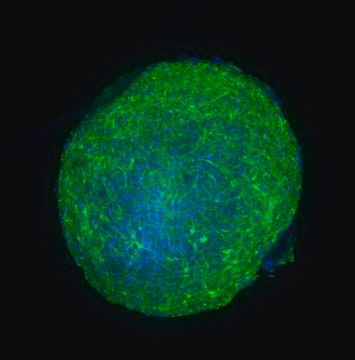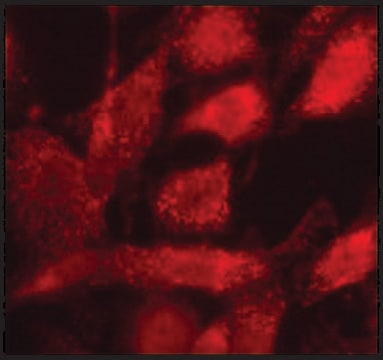PEROX1
Peroxisome Isolation Kit
isolate peroxisomes from tissues and cells
Sinónimos:
Isolation Kit for Peroxisomes, Kit for Peroxisomes, Peroxisome Kit
About This Item
Productos recomendados
Quality Level
technique(s)
centrifugation: suitable
fractionation: suitable
shipped in
wet ice
storage temp.
2-8°C
General description
Application
Features and Benefits
- Specially formulated extraction reagents for research scale applications - save time and minimize waste
- Produces functional intact organelles - resulting peroxisomes are suitable for functional studies, metabolic assays, protein profiling, and disease state analysis
- Compatible with products for structure confirmation - easily confirm intactness with companion test kit, Cytochrome C Reductase Assay Kit (Cat. No. CY0100)
Other Notes
Legal Information
Los componentes del kit también están disponibles por separado
- P8340Protease Inhibitor Cocktail, for use with mammalian cell and tissue extracts, DMSO solutionSDS
signalword
Warning
hcodes
Hazard Classifications
Eye Irrit. 2 - Met. Corr. 1 - Skin Irrit. 2
Storage Class
8A - Combustible corrosive hazardous materials
flash_point_f
188.6 °F - closed cup
flash_point_c
87 °C - closed cup
Certificados de análisis (COA)
Busque Certificados de análisis (COA) introduciendo el número de lote del producto. Los números de lote se encuentran en la etiqueta del producto después de las palabras «Lot» o «Batch»
¿Ya tiene este producto?
Encuentre la documentación para los productos que ha comprado recientemente en la Biblioteca de documentos.
Los clientes también vieron
Artículos
Centrifugation separates organelles based on size, shape, and density, facilitating subcellular fractionation across various samples.
Centrifugation separates organelles based on size, shape, and density, facilitating subcellular fractionation across various samples.
Centrifugation separates organelles based on size, shape, and density, facilitating subcellular fractionation across various samples.
Centrifugation separates organelles based on size, shape, and density, facilitating subcellular fractionation across various samples.
Nuestro equipo de científicos tiene experiencia en todas las áreas de investigación: Ciencias de la vida, Ciencia de los materiales, Síntesis química, Cromatografía, Analítica y muchas otras.
Póngase en contacto con el Servicio técnico










